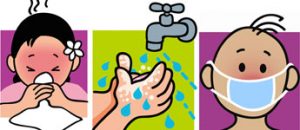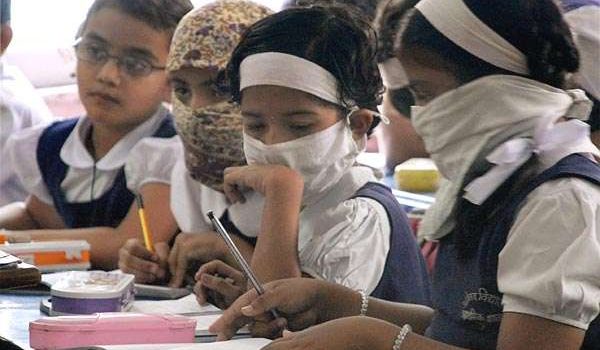Today’s world means that most families have both parents working. This also translates into a situation whereby the burden of monitoring the health of children falls into the laps of their teachers or school nurses. As such if a child contracts the flu at home, and it goes unnoticed by a busy parent, then the child is likely to introduce the illness into the crowded school environment. Coupled with the fact that most children are not very particular about their hygiene habits, this places every other individual who goes to the school at risk of contracting the virus leading to an outbreak.
What is Flu?
In order to combat the Flu, one must understand it. As Sun Tzu said, “…know thy enemy,…” Influenza is viral illness that affects the respiratory tract. The respiratory tract is composed of the nose, trachea, larynx, pharynx, bronchi, bronchioles through to the alveoli.
The common signs and symptoms of an Influenza infection are a fever, a cough, sore throat, possibly body aches and even fatigue.
 The transmission of illness is via respiratory droplets. These can be through coughing, sneezing or even mucus when a child picks his nose. In crowded areas this can be potent, because the close proximity aids in the inhalation of droplets.
The transmission of illness is via respiratory droplets. These can be through coughing, sneezing or even mucus when a child picks his nose. In crowded areas this can be potent, because the close proximity aids in the inhalation of droplets.
Children also likely to wipe their noses with their hands and then touch toys, surfaces or even other children. Other children in turn touch those toys, surfaces and afterwards rub their facial areas. These greatly increases the chance that a respiratory infection like Influenza will be transmitted. It is for this reason that children are more likely to contract the flu than adults.
How Do you Reduce Disease Transmission?
- Contact parents as soon as a child demonstrates signs of illness regardless of whether it is mild or not. As such, all parents’ contacts should be on hand, in case a child needs to be sent home.
- If a child becomes ill, there should be provisions for a separate room where the child can be cared for until the time comes for him or her to go home. This is necessary as contact with other children will surely lead to transmission.
What Can Parents Do?
Parents can help prevent the spread of an infectious disease agent by keeping their sick child at home until the child is better. However, a lot of illnesses tend be highly infectious (very contagious) a day or more before the symptoms present. It is thus advised that hygiene practices be greatly enforced. Ensure that both you and your little one practice frequent handwashing and avoid touching facial areas. This will keep your child from acquiring or spreading the illness.
How To Ensure Good Hygiene?
- Ensure there is a sufficient number of sinks for children to wash their hands in. Also make sure that sinks for food handling are in a separate area from those used to wash hands.
- Keep the sinks clean at all time, and have disposable towels on hand to prevent sharing of towels among children
- Sanitize toys and surfaces always, to kill the virus and prevent persistence of infection.
- Both children and school staff should be instructed to wash hands frequently throughout the day, and what circumstances require an extra effort in the hygiene department.
How To Prevent A Flu Outbreak In School?Finally of all the things that can be done, prevention is key. Everyone that comes in contact with the children has to have an annual flu vaccine. Both for their protection and the protection of the children, who are far more vulnerable to the disease. CVS and Kroger are some of the best providers in the market, so drop by and prevent an outbreak.


